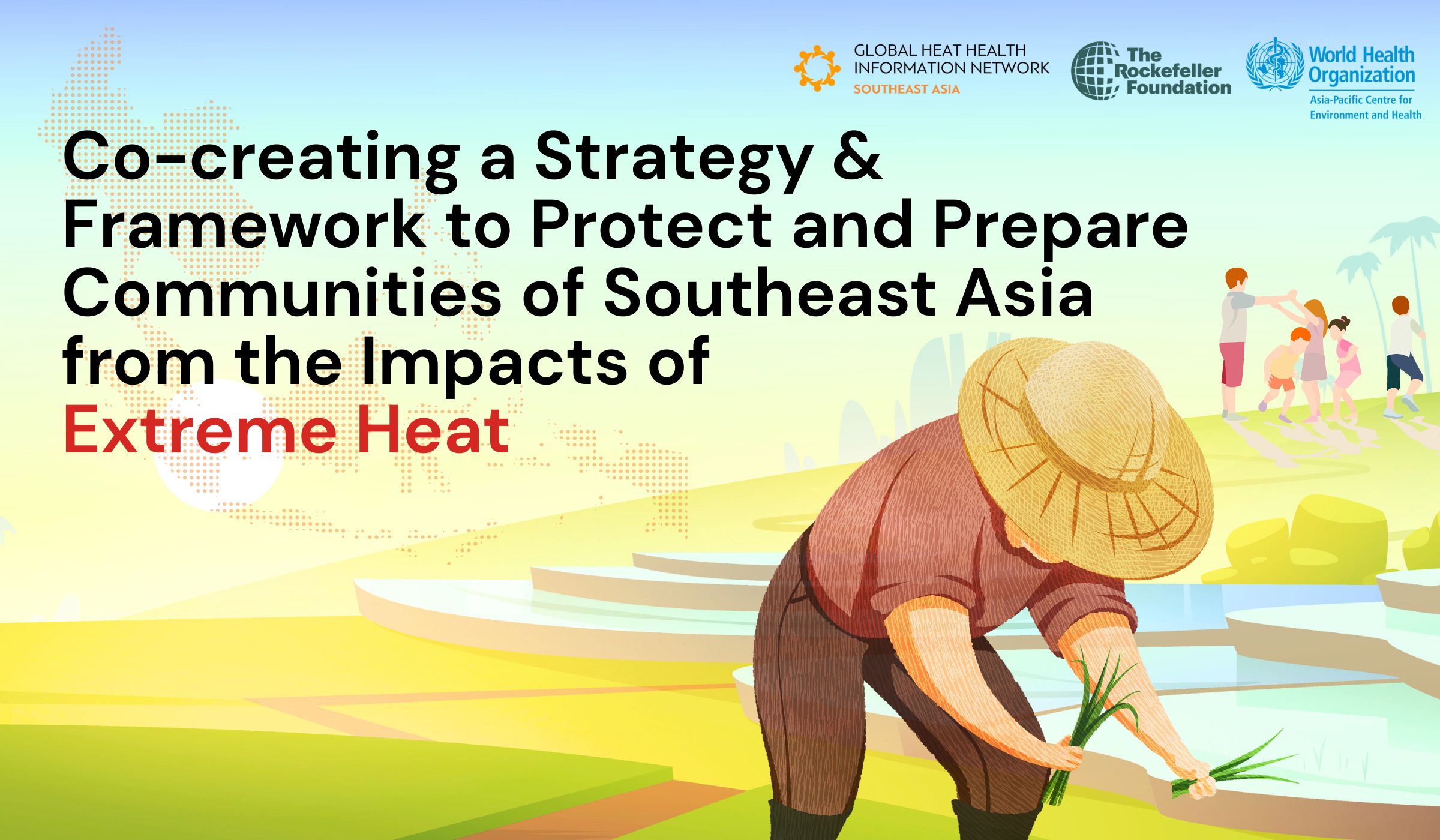Side Meetings
SMB308
Co-creating a Strategy & Framework to Protect and Prepare Communities of Southeast Asia from the Impacts of Extreme Heat
26
Jan
- Global Heat Health Information Network (GHHIN) Southeast Asia Hub
- The Rockefeller Foundation
- WHO Asia-Pacific Centre for Environment and Health in the Western Pacific Region (ACE)

Extreme heat is a growing, under-recognised public health crisis in Southeast Asia. Beyond episodic heatwaves, chronic exposure to high temperatures, exacerbated by humidity, rapid urbanisation, ageing populations, and socio-economic inequities, erodes physical and mental health, sleep, productivity, and strains healthcare and agriculture. Vulnerable groups, including the elderly, farmers, indoor and outdoor workers, and young children, face disproportionate risks, yet impacts are frequently unseen due to limited integration of health and environmental data. Consequences range from excess mortality and cardio-renal-metabolic disease to diminished quality of life and overall wellbeing.
Addressing the interconnected challenges of extreme heat requires a collaborative, multi-disciplinary approach. This side event convenes government, communities, businesses, and experts across health, labour, meteorology, and other sectors to accelerate coordinated action. It will share evidence and best practices to co-develop heat governance strategies and context-specific, holistic interventions. Two sector-focused discussions—agriculture and children—will translate insights into practical, scalable solutions for policy and practice.
This side event is linked with Sub-theme 3: Governing Health for People and Planet: Geopolitics in Flux, particularly as climate-driven extreme weather events has been identified as a top global risk. The side event addresses the theme’s aspects of extreme heat as a planetary health threat, strengthening of governance frameworks to address climate resilience, and issues of health inequity, demographic transitions, and inclusive policies for vulnerable groups (Sub-theme 1.5).
The session objectives are as follows:
1. Highlight the urgency and regional challenges related to extreme heat
- Share latest evidence on chronic and acute heat impacts, including the compounding/ cascading impacts
- Examine the issues of health equity and disproportionate impact of heat
- Encourage cross-country learning and regional data sharing
2. Identify gaps and collaborative opportunities
- Surface gaps in evidence, policy, and practice, with a focus on the need for integrated data systems and targeted interventions for vulnerable groups
3. Seek inputs on potential regional strategy and framework
- Explore the Extreme Heat Risk Governance Framework Toolkit and the development status across the region
- Co-develop guiding principles, priorities, and actionable elements of a regional strategy and framework for heat resilience.
4. Catalyse multidisciplinary and sector-specific action
- Explore promising interventions, policy, and sustainable financing options that can be applied across various socio-economic, geographical contexts, and varying timescales to effect change in the short to medium term.
- Identify opportunities and next steps in evidence and research, with a view toward scalable, contextually relevant solutions.

